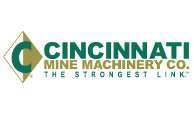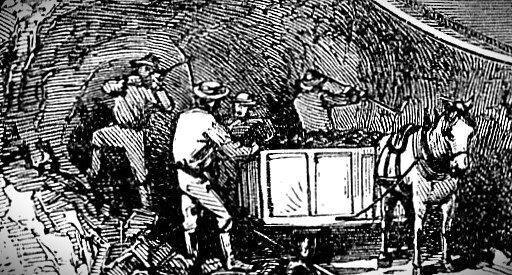
 








.gif)

|
Signature Sponsor


February 9, 2024 - During the 1930s and 1940s the Rockhill Iron & Coal Co. miners at Robertsdale and Wood took part in numerous mine safety and first aid competitions throughout Pennsylvania.
Contrary to public belief the Rockhill Iron & Coal Co. was responsive to miners’ concerns about health and safety in the mines—at least during the later decades of the company’s existence. While labor and management disputes did capture the front-page headlines of the area newspapers, along with repeated miners’ strikes, there was a great sense and urgency regarding safety in and out of the mines and a quick response to mine accidents.
As many of the older miners at Robertsdale and Wood pointed out in past interviews some of the strikes, particularly during World War II and the Korean War, involved “national issues,” not local grievances.
As members of the United Mine Workers of America, the local union members traditionally took part in the work disruptions even though many of the miners feared that some of the local strikes hastened the burial of King Coal.
Recognizing the Need!
During the later years of the mining industry in the Robertsdale/Wood area the miners and the coal company recognized the need for mine safety and first aide training. After all, the underground job of a miner was dangerous and unpredictable.
The height of the coal veins varied and the passageways beneath the tri-county mining region presented many challenges: flooding and water drainage problems, roof collapses, dangers from explosions, and so on. As the words from Tennessee Ernie Ford’s popular “16 Tons” proclaimed, “…you load 16 tons and what do you get, another day older and the deeper in debt.”
Throughout the era of Broad Top mining, which had its commercial birth during the early 1850s, newspapers in Huntingdon, Bedford and McConnellsburg often carried front page stories about deadly mining accidents and other mishaps in and around the mines. Many of these stories now appear in albums, exhibits and miners’ obituaries in the Broad Top Area Coal Miners Museum at Robertsdale.
Fully aware of the dangers of working in the mines, most coal companies, miners’ unions and others who depended on mining for a living, expanded their commitment to mine safety and first aid concerns in the mining areas that included the isolated semi-bituminous Broad Top Coal Field.
First-Aid Competitions
At periodic times throughout the year many of the larger coal companies on the Broad Top conducted first aide and safety training sessions in which the miners studied manuals in preparation for competitions at Portage, Phillipsburg, Kingston and Windber.
Many of these competitions were sponsored by the Central Pennsylvania Safety Association, and the U.S. Dept. of The Interior, Bureau of Mines.
The coal miner’s museum has on display numerous (original) banners and “Sentinels of Safety” awards won by the Rockhill Iron and Coal Co. The awards were earned by miners who worked in the company’s deep mines, from No. 1 and 5 at Robertsdale to Wood’s “Twin Mines” numbers 7 and 8, and the illustrious Rockhill No. 9 mine, located several mines south of Wood along the East Broad Top Railroad.
The museum also displays original “Certificates of First Aid Training,” earned by numerous coal miners including Wood area coal miner Ernest Bolinger. Other certificates recognize mine foremen John F. Griffith in July of 1904 and James Love in May of 1905. Still other special recognition was made of Rockhill coal mines 7, 8 and 9 by the Joseph A. Holmes Safety Association during the 1930s.
No. 8 Mine Award
Of special interest is a large mining certificate which salutes the No. 8 deep mine for its safety accomplishments in 1931. During that year the mine operated “With only four no compensable lost-time accidents causing a total loss of 19 days, working (with) an average of 79 men for 142,248-man hours, and producing 65,695 tons of coal chiefly from pillar work on pitches varying from 10-70 percent.”
Following World War II, the Rockhill mines and miners continued to earn “Outstanding Safety Awards” for no time lost due to mine accidents and injuries, etc. One of those mines was the historic “Slope No. 5” mine at Robertsdale.
Sadly, many coal miners working in the pits at Robertsdale and Wood were killed or suffered injuries in mine accidents. One edition of The Daily News, dated July 22, 1924, proclaimed in a banner headline, “Broad Top Miners under fall of rock.” Still other front-page stories listed the names of miners killed in rock falls, explosions and so on.
The importance of mine safety and first aid training was summed up by Scott Turner, director of the U.S. Department of Commerce, Bureau of Mines in the early part of the 20th century who wrote to congratulate the Broad Top area miners for their involvement in safety competitions and training.
Observed Turner, “No miner can render to his fellow miners a more important service than that of trying to prevent disasters, and that of rescuing and giving first aid to those who may be injured or entombed in a mine.”
Mining Accidents
Over the decades the DN’s “Old News” for has headlined stories about Broad Top mining accidents and miners’ deaths most of which are on file in the coal miners’ museum. Nearly all the mining accidents and deaths were described in front page stories.
One of the stories appearing in the newspaper was about a well-known Dudley area coal miner, Arthur Reed, who was admitted to the J.C. Blair Memorial Hospital at Huntingdon, Pa. in mid-February of 1933. Reed was injured in an accident that took place in the Shannon No. 5 Coal Mine, southeast of Minersville on a Friday morning.
Recalled the newspaper story, “He met with the accident when the mine car jumped the track and caught him between the car and a motor ... this makes seven times Mr. Reed has been a hospital patient, and his friends hope for him a speedy recovery.”
The compilation of coal mining and railroading accidents on the Broad Top continues.
The library staff at the Broad Top Area Coal Miners Historical Society would love to have photos and other information about mining mishaps, train accidents and Broad Top/southern Huntingdon County coal miners who worked in the Broad Top mines.
The information, along with photos, will be placed in special albums for review by visitors and family members. Contact 814-907-1788 for details. Also, miners’ names can be placed on the Miners Memorial Plaques inside the museum at a charge of $100. |
 











|
